Sharks can be problematic when they’re in the water with you.
While shark attacks are relatively rare, you don’t want to find yourself in shark-infested waters.
Honduras offers a lot of beaches and waterways, so it’s important to know if you’re going to find sharks in any of the bodies of water throughout the country.
Contents
So… Are There Sharks in Honduras?
Absolutely. You’ll find many different types of sharks in some of the shallow waters around the reefs.
Roatan is one of the most common cities to visit as it is a popular cruise port.
Once in the city, many people take advantage of shore excursions that focus on being in the water – and some people will see sharks if they are in a boat, snorkeling, or scuba diving.
It is not very common to see sharks from the beach as they don’t typically get that close to the shoreline.
Whether you’ll find sharks or not will depend heavily on the body of water where you are spending your time.
You may see them in the Pacific as well as the Caribbean.
You won’t find them in any of the rivers and lakes, however.
If you spend any time in the Gulf of Fonseca, you may be likely to see some hammerhead sharks.
However, they are not as common as they were several decades ago because of the overfishing that has taken place for so long in the area.
The Gulf of Honduras is another place where you’ll find sharks – and this is where you’ll probably find the greatest variety swimming in the waters.
Essentially, the sharks are in the water. It is up to you whether you actively seek them out or not.
While there are over 400 species of sharks worldwide, there is only a small percentage of species in Honduran waters.
Most commonly, you’ll find nurse sharks, reef sharks, and hammerhead sharks.
Of these, only hammerhead sharks are considered to be aggressive and dangerous.
Nurse sharks won’t attack as they don’t even have teeth.
The coastal waters can include bull sharks, tiger sharks, and six-gill sharks.
Additionally, the whale shark lives in Roatan.
This is the largest species of shark, but it is absolutely harmless to humans because they are a filter-feeder.
They’ll eat plankton and small fish.
They also live primarily on the bed of the ocean, so you’re unlikely to encounter them if you’re swimming or even diving.
The northern region of the island has shallow shores as well as a large bank, which is where the whale shark enjoys spending its time.
The Pew Environment Group estimates that approximately one-third of the shark species in the world are either threatened or endangered.
The reefs that are in place around the island make it possible for various sharks to live – and they have proven to be a valuable part of the ecosystem.
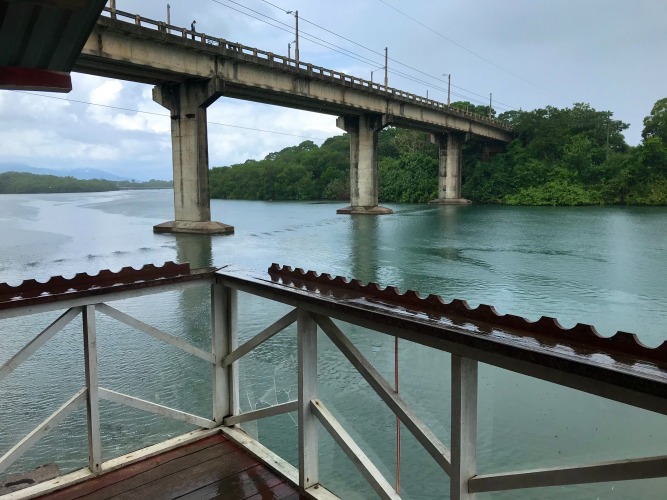
Is It Safe to Swim in Honduras?
Swimming in Honduras happens each and every day, but there are some things you need to be aware of.
Sharks are most likely not going to cause you any harm.
If you actually see one in the water, they are probably not aggressive.
And if you do any kind of shark diving, there are experienced guides who will instruct you on ways to stay safe.
The CDC has reported that there is a bacteria known as leptospirosis in much of the fresh water in Honduras.
This can be found in unchlorinated bodies of water such as rivers, ponds, and lakes.
The majority of beaches are on the ocean or the Caribbean, so they’ll offer saltwater.
Swimming and other water activities are common, so you can relax and enjoy yourself.
Top beaches include:
- Omoa
- Sambo Creek
- Guanaja Beaches
- Cayos Cochinos
- Mahogany Bay
- Trujillo Beaches
- West Bay Beach
If you swim in an area off the beaten path, you may encounter snakes or scorpions around the shore.
Additionally, there may be jellyfish, stingrays, and other problems in the water.
Use caution as being stung by any of these can be painful and require medical attention.
It is always advised that you wear some kind of water shoe when you are walking into the water so that you don’t step on anything that is either sharp or that can sting.
Be sure to pay attention to the various rules, regulations, and warnings any time you visit a beach in Honduras.
There may be weather advisories or warnings about interacting with some of the nature – like wild monkeys that swing through the mangroves.
Interesting Shark Facts in Honduras
Sharks are a part of Honduras, and you’ll find many interesting facts about them throughout the country.
Diving in Roatan is where you’re most likely to encounter sharks – and depending on where, when, and how deep you dive, you may see at least 10 species.
Honduran waters are actually considered a shark sanctuary, and this includes the Pacific and the Caribbean.
This is because President Profirio Lobo Sosa, in 2011, was looking to combat the exploitation of sharks.
The sanctuary helps to limit the effect of overfishing – and there’s a moratorium that encompasses a 92,000 square mile zone.
Sharks are highly predatory, but they are also vulnerable.
Sharks don’t produce until they are 18 years of age and don’t have many offspring.
This means that if sharks aren’t protected until they can reproduce, their numbers will diminish – and that’s what’s being seen with many of the species.
Sharks are sought after for a number of reasons – though their fins fetch a significant amount of money because of being a key ingredient in shark-fin soup.
This is a delicacy in China that can cost up to $750.
Realistically, Honduras is learning that it can make a lot more from shark tourism than it can from killing and selling a shark – which is why there are more diving tours and such.
Many of the tours will feed the sharks as a way to put on a show.
This is highly controversial because marine biologists believe it is dangerous and can affect the way in which sharks become dependent on their food.
Most species of sharks prefer warm, saltwater habitats.
While some sharks can tolerate the colder waters in deeper depths, all need some level of salt.
The reason is because of the salt concentration in their blood.
If the sharks don’t get enough salt from the water they swim in, their cells can bloat, and they can die.
Some sharks have evolved so that they don’t need as much salt.
They retain salt inside of their bodies – and some even have lower salt concentrations in their blood.
These sharks can swim in both saltwater and freshwater bodies of water.
Only a few freshwater species of sharks exist.
These include:
- Borneo River shark (found in Southeast Asia)
- Speartooth shark/Glyphis (found in Northern Australia and West Papua)
- Ganges shark (found in various rivers of India)
- Bull sharks (found around the globe)
Most are extremely rare, though the bull shark is quite common in many parts of the world and extremely deadly.
This shark is also capable of swimming thousands of miles, which means that it can relocate in lakes, rivers, and elsewhere without people realizing it.
It is commonly said that a bull shark is where people least expect them.
Does that mean that they are in some of the freshwater bodies of water in Honduras?
It is possible, but there have been no sightings of them.
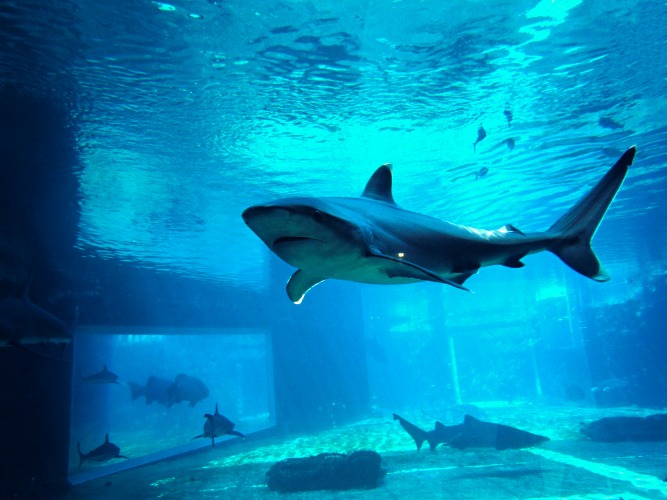
3 Safety Tips for Swimming in Shark-Infested Waters
When you’re in Honduras or anywhere else, it’s important to do your research so you don’t find yourself in shark-infested waters.
If you do happen into such water, though, there are a few safety tips that you should follow.
1. Don’t Enter the Water If You’re Bleeding
This is not a myth.
The reality is that if you’re bleeding, including menstruation, you should not enter the water where there are known to be sharks.
Sharks have the ability to smell blood from three miles away.
2. Don’t Enter the Water Alone
Sharks are much more likely to attack a lone swimmer rather than a group.
Stick with a crowd so that the vibrations in the water scare off any sharks that would otherwise get curious.
3. Avoid Entering the Water at Night
You’ll want as much visibility as possible, and you can’t see sharks in the dark.
Additionally, sharks are more active at night – so if it’s dusk, dawn, or the middle of the night, don’t enter the water.
Otherwise, there is the possibility that a shark will see you as prey and attack.
Summary
Honduras is home to a number of species of sharks, though you’ll have to work hard to find them.
In most tourist-driven areas like Roatan, you’ll have opportunities to interact with them on diving trips.
Otherwise, if you’re simply spending time at the beach, you’re unlikely to see any sharks.
While there are quite a few species in the island nation, you will typically only have to worry about the hammerhead shark.
All of the other species are not known to be aggressive, so they are not going to attack.
Enjoy the water, follow the rules, and know that if you want to see sharks, there are plenty of opportunities to do so safely.
Honduras Safety Overview
READ THE FULL REPORT: Honduras Safety Review
Safety Index: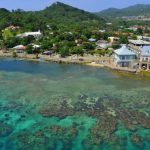
- OVERALL RISK: MEDIUM
- TRANSPORT & TAXIS RISK: HIGH
- PICKPOCKETS RISK: MEDIUM
- NATURAL DISASTERS RISK: MEDIUM
- MUGGING RISK: MEDIUM
- TERRORISM RISK: LOW
- SCAMS RISK: LOW
- WOMEN TRAVELERS RISK: LOW
Frequently Asked Questions
Are there great white sharks in Honduras?
No.
Great white sharks are considered to be the deadliest sharks out there because of their speed, their size, and their level of aggression.
You won’t find them in Honduras – instead, they’ll be found more along the Pacific coast.
Is it possible to survive a shark attack?
Yes.
You’ll want to do anything you can to prevent becoming food.
Avoid splashing and if a shark actually starts to attack, go for its gills or eyes so that you can cause enough harm that you’ll be able to swim away.
Can sharks mistake humans for fish?
Most shark attacks are provoked.
However, it is possible for a shark to mistake a human for a fish depending on what you are wearing.
Avoid anything shiny because it can end up looking like the scales of a fish when you’re in the water.
How many shark attacks happen every year?
On average, there are about 75 shark attacks every year around the entire world – and only about four results in deaths.
Almost no attacks are reported in Honduras on an annual basis.
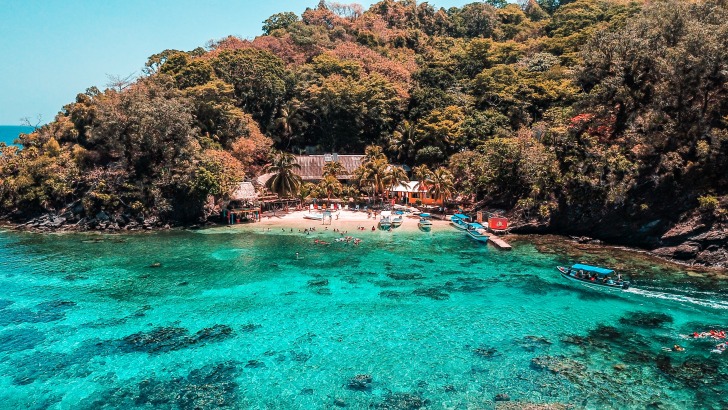




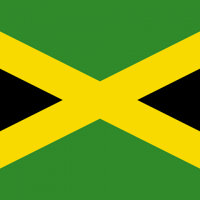






Sharks can be found in some of the waters around Honduras, but with proper precautions and knowledge, you can still enjoy the beaches and water activities without fear.